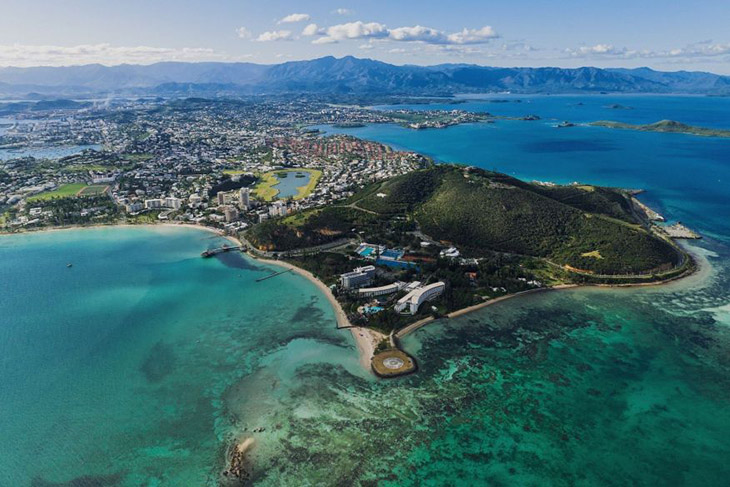

In a landmark move for marine conservation, the Pacific island territory of New Caledonia has announced a 50-year moratorium on seabed mining, effectively halting the extraction of nickel and other minerals across a vast 1.3 million square kilometers of its ocean territory. The bold legislation, passed with broad support from local lawmakers, positions New Caledonia among the most restrictive jurisdictions globally when it comes to seabed resource exploitation.
The sweeping ban is not merely symbolic—it protects one of the richest and least-disturbed marine ecosystems on Earth. “Rather than giving in to the logic of immediate profit, New Caledonia can choose to be a pioneer in ocean protection,” said Jérémie Katidjo Monnier, the local government official responsible for environmental issues, during the public session as reported by Radio France Internationale (RFI). He emphasized that the measure is not only about ecological stewardship but also an act of asserting environmental sovereignty against the interests of multinational corporations.
Indeed, the decision comes at a critical juncture in the global debate over deep-sea mining. As demand grows for minerals like nickel, cobalt, and copper—crucial for electric vehicle batteries and renewable energy storage—many countries and companies are eyeing the ocean floor as the next frontier of mineral extraction. But this interest is met with rising alarm from scientists, environmentalists, and policymakers who warn that the deep-sea environment remains poorly understood and incredibly fragile.
New Caledonia’s coral reefs are among the most pristine in the world. With only about 1.5% of global coral habitats classified as untouched, the ban serves as a protective shield over one-third of the planet’s remaining pristine reef systems. The decision underscores the territory’s commitment to long-term ecological resilience over short-term economic gain.
While the ban has been widely applauded by environmental advocates, it has also drawn criticism from certain political factions aligned with French national interests. Some representatives argued the policy was “disproportionate,” contending it places off-limits vast areas of seabed “we’ve never even seen before.” This critique touches on a larger issue: the tension between economic development—especially in resource-rich but underdeveloped regions—and environmental preservation.
The controversy is not limited to New Caledonia. Globally, deep-sea mining is a hotly debated topic. Japan, which has developed some of the world’s most advanced seabed mining infrastructure, is actively planning to mine manganese nodules and cobalt-rich crusts within its territorial waters. Unlike in many regions where mineral deposits lie beneath the seabed, Japan’s resources often sit on the surface, making extraction technically easier—though still environmentally risky. Japan has announced its intention to pair its mining plans with extensive environmental assessments to mitigate potential harm, marking what could become the first large-scale, scientifically monitored deep-sea mining operation in national waters.
Yet the broader scientific consensus remains cautious. Over 20 nations have either called for moratoriums or temporary pauses on seabed mining activities. Their collective concern is rooted in the lack of comprehensive scientific data on deep-sea ecosystems and the potential for irreversible damage. “We’re only beginning to understand how interconnected deep-sea life is with the rest of the ocean,” said Dr. Lisa Levin, a marine ecologist at the Scripps Institution of Oceanography. “Mining the seabed could disrupt these ecosystems in ways we can’t yet predict.”
New Caledonia’s moratorium sends a strong message: that protecting oceanic biodiversity and asserting ecological self-determination can go hand in hand. The 50-year timeline is especially significant, providing a buffer for future generations while global science catches up with industrial ambition. By acting now, the island territory has taken a leadership role that other coastal and island nations may well emulate in the years to come.
As the world stands at the cusp of a new era in resource extraction, New Caledonia’s decision marks a defining moment in the push for a more cautious, science-driven approach to the deep sea.
What are your thoughts? Please comment below and share this news!
True Activist / Report a typo







